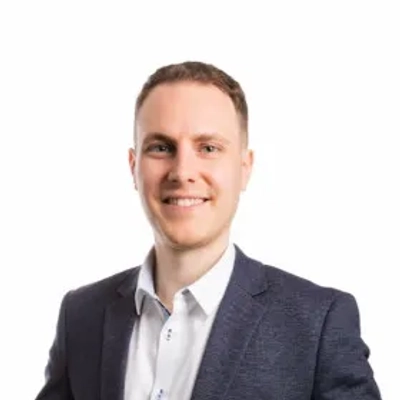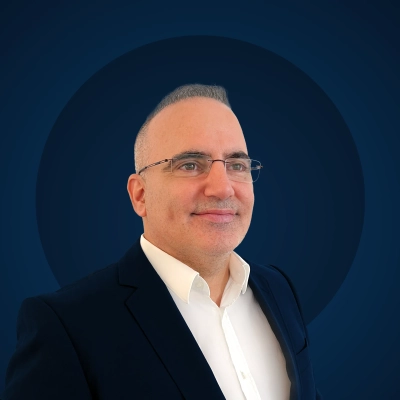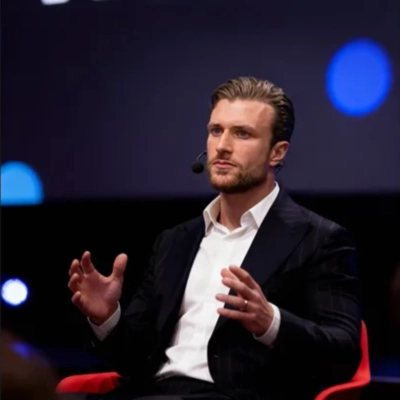How to Measure and Ensure Brand Voice Consistency in Awareness Campaigns
Brand voice consistency remains one of the most critical yet challenging aspects of successful awareness campaigns according to industry specialists. Marketing professionals have shared key insights on measuring and maintaining a consistent brand voice throughout customer touchpoints. The following strategies offer practical approaches to ensure your brand messaging stays cohesive while effectively reaching your target audience.
Open Relationships Instead of Closing Deals
"Success in sales isn't about closing deals it's about opening relationships."
When I think back to the early days of my career, the biggest lesson I've learned is that sales is never just about selling it's about solving problems and building trust. Too many people chase targets before they understand the customer. The best sales consultants are the ones who listen first, speak second, and focus on creating real value. I wish someone had told me earlier that consistency beats talent every single time. You don't need to be the smartest person in the room you just need to show up every day with curiosity, humility, and the drive to keep improving. Relationships, not transactions, are what truly build a lasting career.
Listen Like a Strategist Not a Seller
If I could give one piece of advice to aspiring sales consultants, it would be this: learn to listen like a strategist, not a seller. Early in my career, I thought success came from mastering scripts and objections. What I eventually learned is that the best consultants don't persuade—they translate. They turn client problems into clarity.
One moment that changed my approach was a pitch that almost fell apart. I was focused on closing, but the client's hesitation wasn't about price—it was about uncertainty. So I scrapped my deck mid-meeting and asked a simple question: "What would success look like six months from now if we got this right?" That one shift turned the conversation around. It stopped being a transaction and became a collaboration.
The key thing I wish I knew earlier is that your credibility doesn't come from having all the answers—it comes from asking the right questions. Clients don't buy confidence; they buy clarity. When they feel seen, they trust your guidance.
For Consultant Magazine readers, remember: selling isn't about pushing solutions—it's about uncovering alignment. Listen deeply, think critically, and help people make decisions they already want to make. That's how you build a reputation that lasts.
Be a Problem Solver First Salesperson Second
My advice for aspiring sales consultants is to abandon the transactional mindset and embrace genuine problem-solving. Your job isn't to sell a service; it's to diagnose a prospect's critical business pain point and clearly articulate how your solution solves it, or walk away if it doesn't fit. Be an expert consultant first, and a salesperson second.
The key thing I wish I knew when starting out is that deep listening is your highest-leverage skill. Ninety percent of the sale is won or lost based on your ability to truly understand the prospect's needs and objections, which means asking great questions and then remaining silent to absorb the full answer.

Treat Sales Like a Business Not a Job
Hi,
I'm Alexei Morgado, a Florida real estate agent and Lexawise founder, licensed since 2020. My insights have been featured in Realtor.com, Homes.com, HouseLogic, The Spruce, and MSN, plus other outlets.
My answer:
My best advice for sales consultants just starting out is to treat your career like your own business, not like a job. From day one, create systems, establish metrics, and design routines that you can maintain even when motivation is low.
Prior to launching my career in real estate, I also worked as a programmer; oddly enough, it has had a beneficial effect on my sales management, even if it was unintentional on my part. As a programmer, I trained myself to think in cause-and-effect relationships, read data, and look for ways to make things more efficient. And it's exactly what I do now in my line of work. I watch for trends in my clients' dialogues, look for which strategies yield the greatest level of trust, and then improve my strategy as if these were algorithms I could retool with each pass. And in sales, the numbers hold the secret, and with knowledge of where to look, I can predict outcomes.
That's exactly why I would advise that instead, they need to build processes before speed, define their customer generation strategy, their strategy for following up with these relationships, and converting these into opportunities. Don't be afraid to use technology, either. Using digital tools like CRM, automation, artificial intelligence can help them optimize their work. And that's precisely one thing I wish I'd known when I started. The key is not working harder but working with purpose.
I hope my answer will be useful for your article. Also, it would be my pleasure if you need any qwote for any article where I can help
Thanks for the opportunity
Contribution Link: https://www.lexawise.com
Best,
Alexei

Build Lasting Relationships Before Pursuing Revenue
Focus on Building Trust Before Chasing Targets
My #1 piece of advice for any aspiring sales consultant is to focus on building long-lasting relationships with your clients versus just generating revenue. At the beginning of your sales career, it can be very easy to get caught up in the numbers game or looking for a quick win, but ultimately, true success comes down to knowing what your clients really need and providing them with solutions that are going to make a positive impact in their business.
When your clients feel heard and truly supported by you, the sales will follow.
Sales is not about having the "perfect" pitch; it is about asking the right questions, listening to all the details of the client's situation and being able to tailor your approach to meet each client where they are at in their journey. The ability to listen and understand your clients' needs and challenges is what separates top-performing sales consultants from the average sales consultant.
If you consistently build trust with your clients, continue to learn and grow as a sales professional and remain consistent with your clients, your reputation will become your best sales tool.

Bring Clarity Rather Than Forcing Conclusions
When you're just starting out in consulting sales, there's an overwhelming pressure to be the expert in the room. You feel like you need to have a brilliant answer for every question and a polished pitch that perfectly articulates your value. This instinct is natural; you want to prove your worth. But it can lead you down a path of talking *at* people instead of talking *with* them, and it makes the entire process feel like a performance you have to nail every single time. It's an exhausting and often ineffective way to operate.
The one thing I wish I truly understood from day one is that your primary job isn't to convince, but to bring clarity. Great consultants don't win by having the slickest presentation; they win by helping the client better understand their own problem. When you shift your mindset from "I need to persuade this person" to "I need to help this person make a good decision," the dynamic changes completely. You stop being a vendor pushing a product and become a thinking partner. Your most powerful tools are not your statements, but your questions. The goal is to get them to see their own situation with new eyes, and your solution becomes the logical next step, not a forced conclusion.
I remember an early meeting where I spent an hour perfectly demonstrating our software to a prospect who seemed disengaged. I answered every question with a feature, trying to prove how great our product was. The meeting ended with a polite, "Thanks, we'll let you know." Years later, in a similar situation, a client told me they weren't sure our service was a priority. Instead of arguing, I simply asked, "If you did nothing about this for another year, what would the real cost be?" We spent the next 45 minutes whiteboarding their answer, and I barely said a word about my company. At the end, they looked at the board and said, "We need to fix this." Your job isn't to close a deal, but to open up their thinking.
View Rejection as Feedback Not Failure
My advice to aspiring sales consultants is to focus on listening more than talking. The best consultants aren't just selling products but they're solving problems. By actively listening to clients' challenges and asking thoughtful questions, you build trust and trust is what ultimately drives conversions and long-term relationships.
One key thing I wish I knew earlier is that rejection isn't failure. It's feedback. Every "no" is an opportunity to refine your approach, enhance your understanding, and strengthen your resilience. The best salespeople view setbacks as data, not discouragement. I'd also emphasize the importance of consistency in follow-ups, communication, and attitude. A single conversation rarely seals a deal, but genuine effort and reliability build a reputation that lasts. I think great sales consultants lead with empathy, curiosity, and adaptability. The more you focus on understanding people rather than pushing products, the more natural and rewarding success becomes.

Sell Structural Certainty Not Product Features
The advice I'd give to aspiring sales consultants is to immediately stop selling products and start selling structural certainty. The conflict is the trade-off: early in your career, you're taught to memorize features, which creates a structural failure because clients are buying trust, not specifications. You must shift the focus from what the customer is buying to the single, massive problem you are solving for them.
The single key thing I wish I knew when I was starting out is that the customer's fear of failure is exponentially stronger than their desire for a deal. I spent years arguing about price, when I should have been focused on quantifying the financial and logistical disaster that would happen if they chose the cheaper, non-specialized solution. The sales conversation isn't about the final number; it's about proving that your expertise is the cheapest form of insurance against the costliest form of structural failure.
The advice is to commit to the Hands-on "Cost of Inaction" audit. Use verifiable data, imagery, and structural reports to force the client to confront the measurable financial risk they face by not hiring you. This instantly transfers trust and converts the price into a value proposition. The best advice for aspiring sales consultants is to be a person who is committed to a simple, hands-on solution that prioritizes quantifying the cost of structural risk over competing on abstract price.
Master Technical Knowledge to Eliminate Client Risk
Aspiring sales consultants must understand that success is not built on abstract persuasion; it is built on verifiable operational certainty and the ability to eliminate the client's risk. You secure a career by becoming an indispensable specialist, not a generalist.
The advice I would give is to stop selling the abstract solution and start selling the objective data that guarantees the outcome. In the heavy duty trucks trade, a consultant's value is measured by their ability to provide expert fitment support and guarantee that the OEM Cummins part will function flawlessly. This requires rigorous, non-abstract technical knowledge. You must master the inventory, the technical specifications of the Turbocharger assembly, and the single, most expensive failure point in your entire product line.
One key thing I wish I knew when I was starting out is that the customer's stated problem is rarely the real problem. I wasted valuable time early in my career trying to address the customer's initial, surface-level complaint. I wish I had known to immediately pivot the conversation to a Root Cause Operational Audit, forcing the client to confront the underlying financial and operational flaw that caused the issue. This technical honesty is the only way to earn trust and secure the high-value sale.
Your career growth is entirely dependent on your commitment to zero-error execution. You must become the single, most trustworthy source of operational truth for your client. Never compromise the integrity of the sale for a quick commission. That operational discipline is the foundation of all long-term success.

Embrace Growth Mindset Through Daily Practice
I work a lot with IT recruiters and advising students how to break into high-finance roles. I have also founded 2 successful startups recently. I can certainly advise on this.
I'd say there is no silver bullet, and you should consider sales just like any other job that you can learn. In other words, have a growth mindset, and make sure you have a passion for it. It's better to quit if you realise you don't love what you are doing (doing telesales, for instance). To become good at sales, it takes practice, blood and tears. It is really that simple on the surface. Learn the rules, and execute on them to the best of your ability.
You basically need to work hard, listen to feedback, and continously improve and learn new skills and tricks (especially from your more senior colleagues). Get into the trenches every day (that means going to the office 4-5 days a week). Pay attention to your mental health especially, as in sales, buyers often are going off their emotions, and no one wants to buy from a miserable guy or gal.

Solve Problems First to Earn Real Commitment
"Start by solving, not selling. The first call is for discovery, so ask what success looks like and where the bottlenecks are, then earn the second call by sending something useful within a few days. That could be a short teardown, a checklist, or a mini plan tailored to what you heard. Genuine customers commit to concrete next steps and specific follow ups.
But the biggest lesson I wish I knew earlier is that a lead's interest is not commitment. A deal is real only when the next step is on the calendar, the deliverable is defined and both sides know who does what by when. A new sales consultant might feel demoralized if the lead says he or she will get on a call but then ghosts them the next day. It's all part of the toughening process so let every setback make your skin thicker."
- Mayur Vastari, Qubit Capital.
If you find this quote usable in your article, please link us back to Qubit Capital (https://qubit.capital/).






